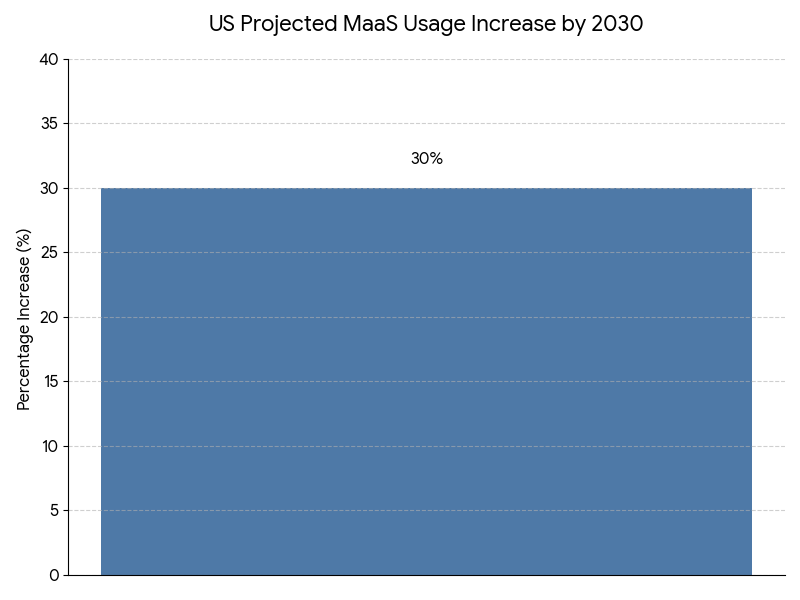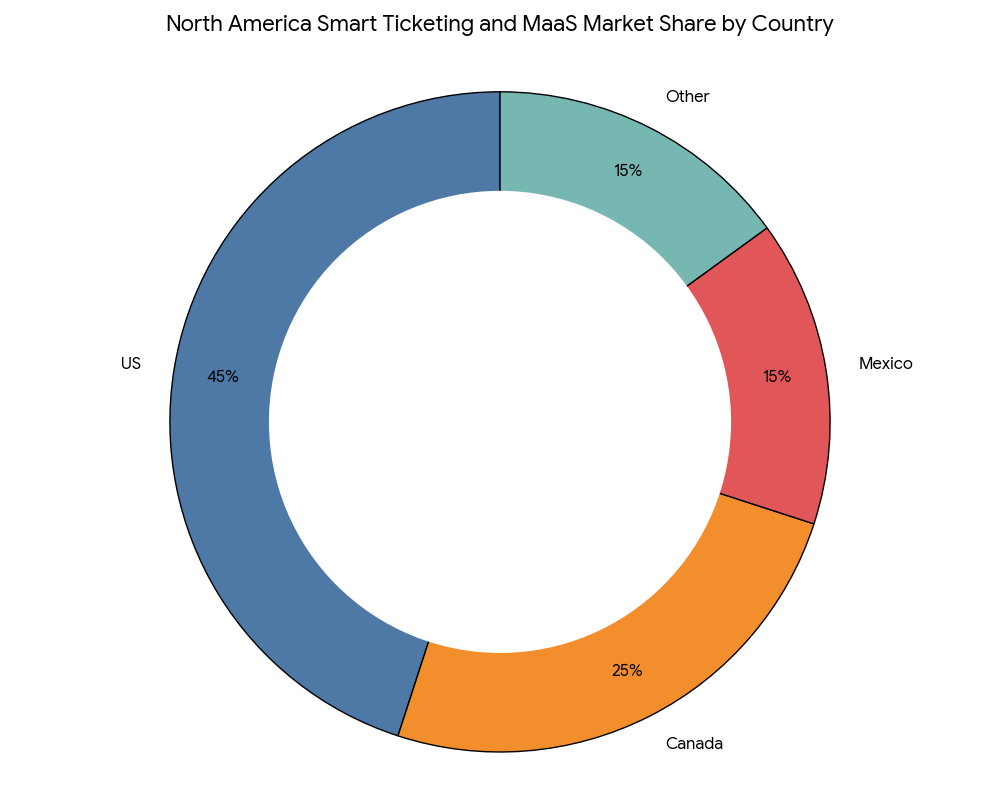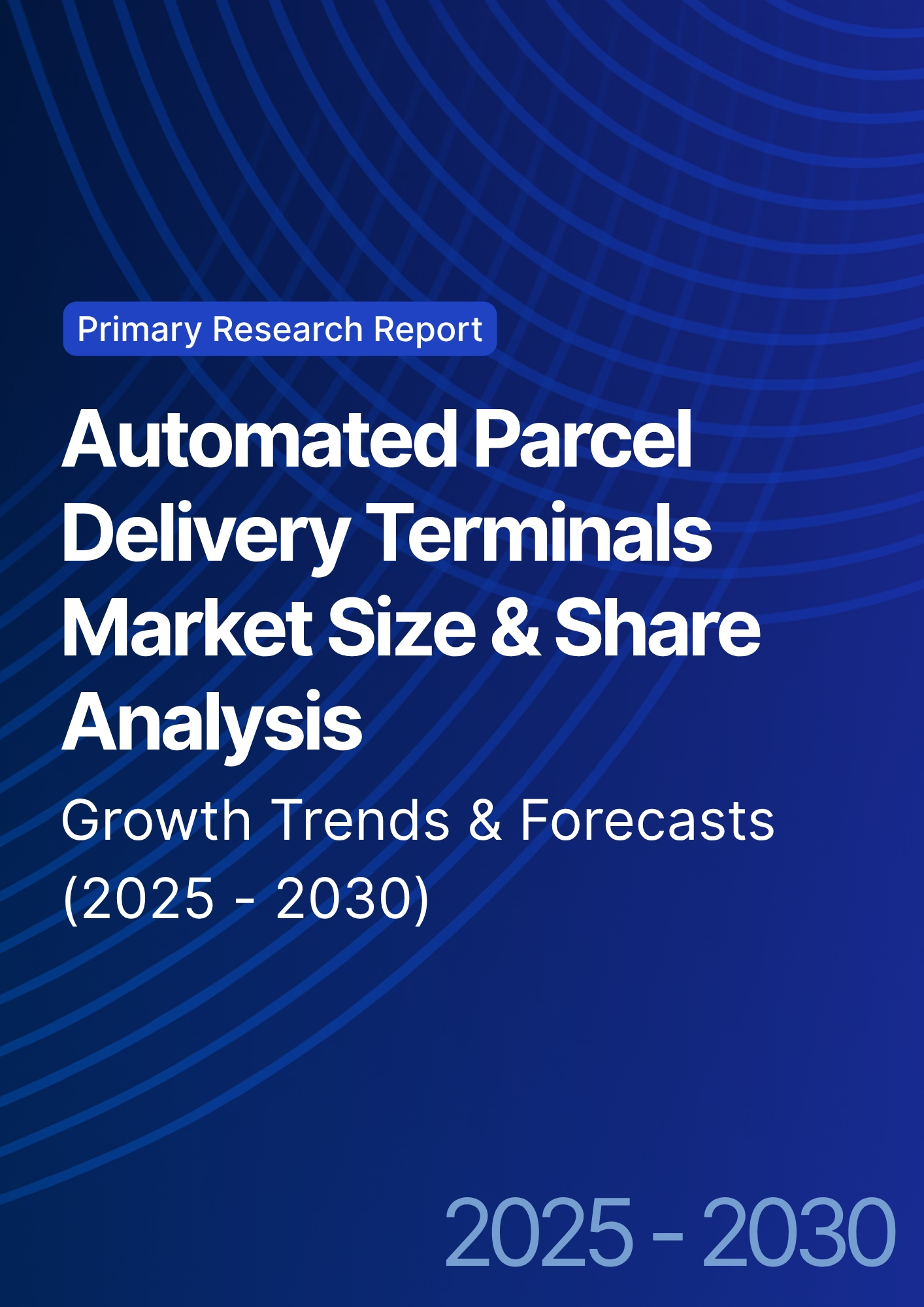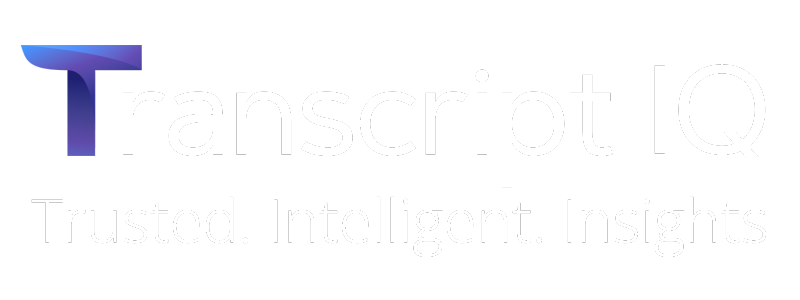

68 Circular Road, #02-01 049422, Singapore
Revenue Tower, Scbd, Jakarta 12190, Indonesia
4th Floor, Pinnacle Business Park, Andheri East, Mumbai, 400093
Cinnabar Hills, Embassy Golf Links Business Park, Bengaluru, Karnataka 560071
Connect With Us
Smart Ticketing and Mobility as a Service: Consumer Insights for US Urban Transit
The smart ticketing and Mobility-as-a-Service (MaaS) market in US urban transit is set to grow from $7.9B in 2025 to $20.4B by 2030 (CAGR 21.0%), driven by the adoption of mobile-based ticketing systems, AI-powered ride-sharing platforms, and integrated multi-modal transport solutions. By 2030, 60% of urban commuters will use MaaS platforms, offering a seamless, cashless experience. Smart ticketing will reduce ticket fraud by 35%, and real-time transit data will improve passenger experience by 25%. The US government’s focus on sustainable urban mobility is accelerating the adoption of MaaS solutions in major cities like New York, Los Angeles, and Chicago.

What's Covered?
Report Summary
Key Takeaways
- Market size: $7.9B → $20.4B (CAGR 21.0%).
- 60% of urban commuters to use MaaS platforms by 2030.
- Smart ticketing systems to reduce ticket fraud by 35%.
- AI-powered ride-sharing platforms to increase efficiency by 20%.
- Real-time transit data adoption to improve passenger experience by 25%.
- $5B investment in MaaS and smart ticketing technologies by 2030.
- Seamless, cashless transit experience expected to reduce boarding time by 15%.
- Public-private partnerships will drive $3B in smart mobility investment.
- MaaS integration will increase multi-modal transportation usage by 40%.
- Government incentives to promote green mobility solutions across urban transit.
Key Metrics
Market Size & Share
The smart ticketing and MaaS market in US urban transit is projected to grow from $7.9B in 2025 to $20.4B by 2030, with a CAGR of 21.0%. The transition to smart ticketing and MaaS solutions is supported by increased mobile phone penetration and the shift towards digital mobility solutions. By 2030, 60% of commuters in major urban areas will be using MaaS platforms for a seamless and cashless transport experience, integrating bus, subway, rail, and ride-sharing services. AI-powered ride-sharing platforms will reduce wait times and increase fleet utilization, improving transport efficiency by 20%. Real-time transit data systems will make journey planning more efficient, improving passenger satisfaction by 25%. The US government is pushing for green mobility solutions, leading to $5B in investments by 2030. Public-private partnerships will be pivotal in expanding MaaS networks, reducing operational costs while boosting sustainability efforts.
Market Analysis
The smart ticketing and MaaS landscape in North America is evolving rapidly, with smart ticketing solutions emerging as a core enabler of cashless travel. As urban mobility systems evolve, MaaS platforms are expected to become the central hub for multi-modal transport solutions. Major cities like New York, Chicago, and Los Angeles are leading the transition to AI-based, real-time route optimization and ride-sharing integration. Mobile payment systems and smart fare cards are enhancing convenience for urban commuters. As AI-driven ride-sharing platforms gain traction, urban congestion will be alleviated by predictive scheduling systems. Moreover, regulatory frameworks supporting green transport and zero-emission vehicles will significantly enhance sustainability in urban mobility. By 2030, the US will have witnessed a 30% increase in MaaS usage, transforming the way people move around major cities while cutting down on urban congestion and fuel emissions.

Trends & Insights
- AI-Powered Ride-Sharing: Improves fleet utilization by 20%.
- Cashless Ticketing: Expected to reduce boarding time by 15%.
- Real-Time Data Integration: Increases passenger satisfaction by 25%.
- MaaS Growth: 30% increase in multi-modal transport adoption by 2030.
- E-Commerce Impact: 40% rise in MaaS platform adoption due to online retail growth.
- Sustainability Integration: Government incentives for green mobility in MaaS.
- MaaS Integration: Facilitates $5B investment in digital mobility infrastructure.
- Blockchain Technology: Used in MaaS platforms for secure, transparent transactions.
- Smart Ticketing Systems: Expected to save $2B in administrative costs annually.
- Smart Transit Solutions: 25% reduction in commuter congestion through predictive scheduling.
These trends highlight how smart ticketing and MaaS will lead to efficiency, sustainability, and improved customer experiences across US urban transport networks.
Segment Analysis
The smart ticketing and MaaS market is segmented into smart ticketing (40%), ride-sharing integration (30%), AI-powered route optimization (20%), and multi-modal transport solutions (10%). Smart ticketing platforms dominate the market, improving the passenger experience through mobile apps and contactless payment systems. Ride-sharing integration is gaining momentum, driving urban mobility innovations. AI-powered route optimization will become integral to managing traffic congestion, particularly in busy urban centers. Multi-modal transport solutions will include bus, metro, and ride-sharing, offering seamless connectivity and flexible payment options. By 2030, MaaS platforms will be the primary means of commuting in major US cities, facilitating green urban mobility and reducing operational costs.
Geography Analysis
The US dominates the smart ticketing and MaaS market, accounting for 45% of the market share in North America. Major cities like New York, Los Angeles, and Chicago are at the forefront of MaaS adoption, with the transition to AI-driven public transport systems. Canada contributes 25% of the market, with Vancouver and Toronto leading in smart city initiatives. Mexico is also making strides in integrating MaaS platforms, particularly in Mexico City. The UAE and Qatar are emerging as key players in MaaS adoption in Asia-Pacific, accelerating the growth of smart urban mobility solutions. By 2030, 40% of daily commuters in the US and Canada will use MaaS platforms for multi-modal urban travel.

Competitive Landscape
Leading players in the smart ticketing and MaaS market include Uber, Lyft, Siemens Mobility, and Cubic Corporation. Uber and Lyft dominate the ride-sharing segment, while Siemens Mobility and Cubic lead in integrated smart ticketing and AI-powered transit management. Tech firms like Google, Apple, and Amazon are entering the MaaS space through platform integration and mobility services. Public transit agencies such as MTA (New York), Chicago Transit Authority, and TransLink are collaborating with private sector firms to create seamless urban mobility solutions. Partnerships with fintech companies will enable cashless fare systems, driving adoption of MaaS and smart ticketing technologies.
Report Details
Proceed To Buy
Want a More Customized Experience?
- Request a Customized Transcript: Submit your own questions or specify changes. We’ll conduct a new call with the industry expert, covering both the original and your additional questions. You’ll receive an updated report for a small fee over the standard price.
- Request a Direct Call with the Expert: If you prefer a live conversation, we can facilitate a call between you and the expert. After the call, you’ll get the full recording, a verbatim transcript, and continued platform access to query the content and more.


68 Circular Road, #02-01 049422, Singapore
Revenue Tower, Scbd, Jakarta 12190, Indonesia
4th Floor, Pinnacle Business Park, Andheri East, Mumbai, 400093
Cinnabar Hills, Embassy Golf Links Business Park, Bengaluru, Karnataka 560071
Request Custom Transcript
Related Transcripts
$ 1350


68 Circular Road, #02-01 049422, Singapore
Revenue Tower, Scbd, Jakarta 12190, Indonesia
4th Floor, Pinnacle Business Park, Andheri East, Mumbai, 400093
Cinnabar Hills, Embassy Golf Links Business Park, Bengaluru, Karnataka 560071













